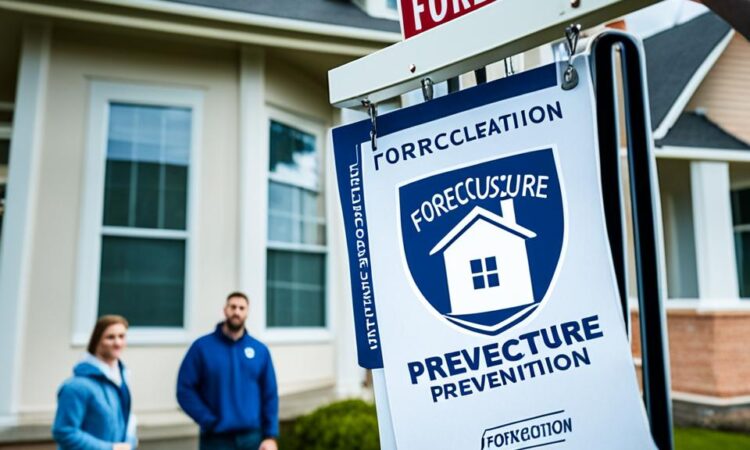
How To Avoid Losing Your Home to Foreclosure in Costa Rica
Foreclosure is what happens when people can’t pay their mortgage. It’s a serious issue that can greatly affect homeowners in Costa Rica. One way to stop it is through Gap Equity Loans. This option prevents the lender from taking back your home.
If your house is taken through foreclosure, you not only lose your home. Your credit score will also drop a lot. This makes it tough to get loans in the future. Beyond financial troubles, the stress it causes can deeply impact your family’s well-being.
Key Takeaways
- Understanding mortgage default and the foreclosure process in Costa Rica is crucial to avoid losing your home.
- Exploring loan modification and debt restructuring options can help you stay in your home.
- Familiarizing yourself with foreclosure alternatives, such as short sales and deed-in-lieu of foreclosure, can provide viable options.
- Seeking assistance from housing counseling services can guide you through the mortgage assistance process.
- Understanding your borrower rights and the mortgage delinquency regulations in Costa Rica can help you make informed decisions.
Understanding Foreclosure in Costa Rica
Foreclosure happens when a homeowner doesn’t pay their mortgage. This can lead to big financial and emotional troubles in Costa Rica. Knowing about foreclosure and its effects is key for those dealing with it.
What is Foreclosure?
If you don’t keep up with payments, the lender can take your house. This starts a legal process that can be long. Your lender will first give you time to catch up. If you can’t, they might sell your home to cover what you owe.
The Impact of Foreclosure
Foreclosure’s effects aren’t just about losing a home. It can hurt your credit score a lot. This makes getting new loans tough. Losing a home can also be very hard emotionally. It can cause stress, insecurity, and even depression for you and your family.
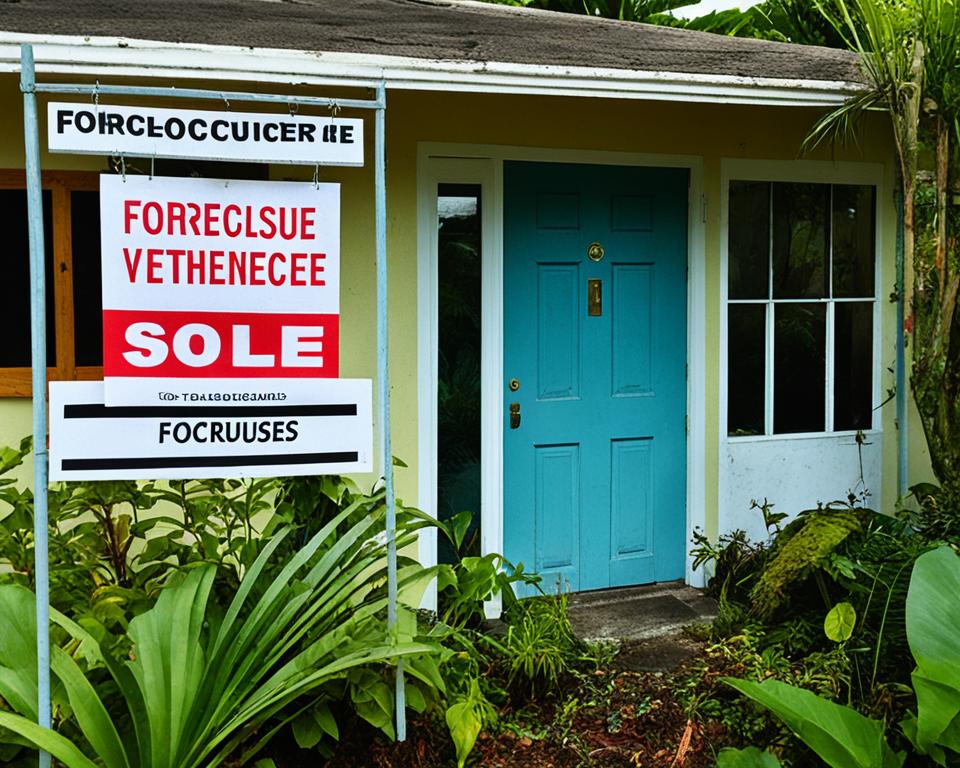
Early Signs and Steps to Avoid Foreclosure
If you own a home in Costa Rica and are finding it hard to pay your mortgage, you might face foreclosure. Missing mortgage payments for about 120 days is a common sign this could happen. But, there are things you can do to prevent this from occurring.
Contact Your Lender
First, get in touch with your lender if keeping up with mortgage payments is tough. Most lenders want to help borrowers keep their homes. They might suggest a plan to pay back what you owe, change your loan terms, or offer other solutions.
Seek Assistance from Housing Counselors
Getting help from housing counselors is also important. They offer advice and planning help at low or no cost. By working with you and your lender, they can suggest several ways to avoid losing your home. This could include setting up a new payment plan, changing the terms of your loan, or looking at other financing options.
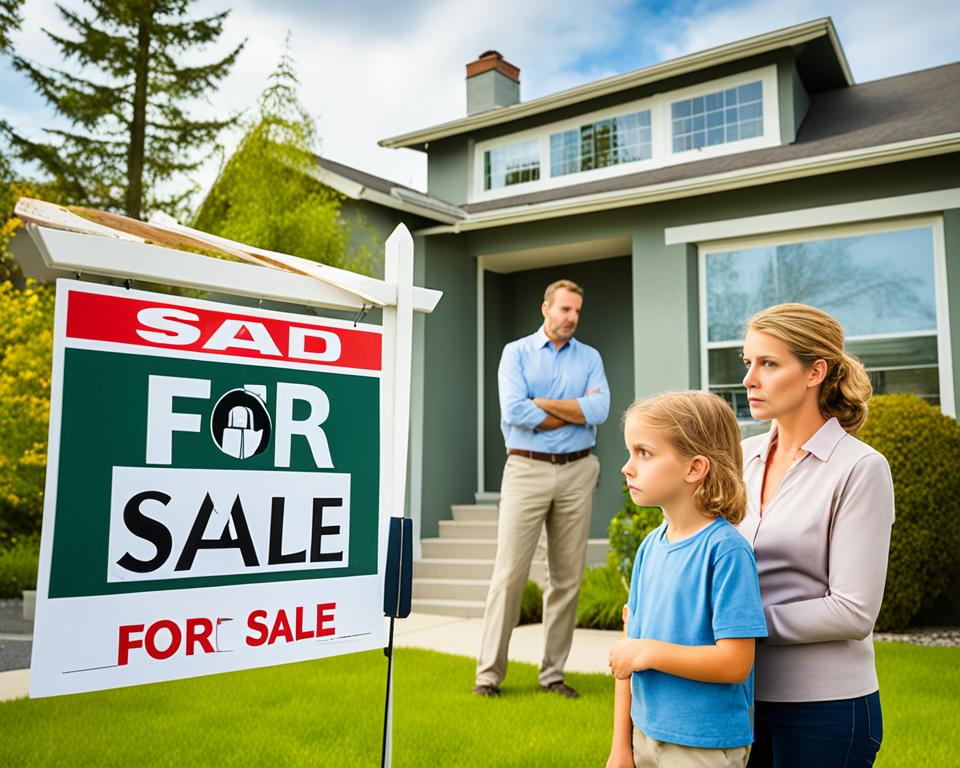
Alternatives to Foreclosure
If you can’t pay your mortgage and your lender won’t help, there are other options. These choices help avoid the heavy costs of losing your home.
Loan Modification
Modifying your loan can be a big help. It means talking to your lender to change your mortgage terms. This might lower your interest rate or extend your payment time. Almost two-thirds of homeowners in Costa Rica use loan modification instead of losing their homes.
Short Sale
A short sale is another option to avoid foreclosure. Here, you sell the house for less than what you owe. Then, the lender forgives the remaining debt. It’s chosen by around 10% of people trying to keep their homes in Costa Rica.
Deed in Lieu of Foreclosure
With a deed in lieu, you voluntarily give your house back to the lender. In return, they don’t foreclose. This can be better for your credit. It offers a way to move on from your home without a foreclosure.

| Foreclosure Alternative | Percentage of Homeowners in Costa Rica Who Choose This Option |
|---|---|
| Loan Modification | 65% |
| Forbearance | 20% |
| Short Sale | 10% |
| Bankruptcy | 5% |
Not to Lose Your Home to Foreclosure
If you’re worried about losing your home in Costa Rica, start acting now. Understand how foreclosure works. Talk to your lender and get advice from housing counselors. Look into ways like loan changes, selling short, or handing back the deed to avoid losing your home.
In Costa Rica, foreclosure starts with a grace period of up to 15 days after your mortgage’s due date. Some lenders see you as in trouble after 30 days of not paying. Others do this after 15 days. If you don’t pay, you’ll get a notice and have about 90 days to pay up. Or, you can try to make a new payment plan with your lender.
It’s key to talk with your lender. They might offer special plans to help you. If your home sells, you usually have to leave. How much time you get to move out depends on the law where you live. Some states let you stay a bit longer after the sale, based on local rules.
After the sale, if the home sold for less and you still owe, the lender might try to get the rest from you. But, many places have laws that stop them from doing this after a foreclosure. Remember, as long as you own it, you have to pay the taxes. If you don’t, the government could take your property.
Know the foreclosure process and take action to keep your home in Costa Rica. Think about changing your loan or selling the home quickly. Talking to experts and knowing your rights are very important. They can help you keep your home and protect your money.
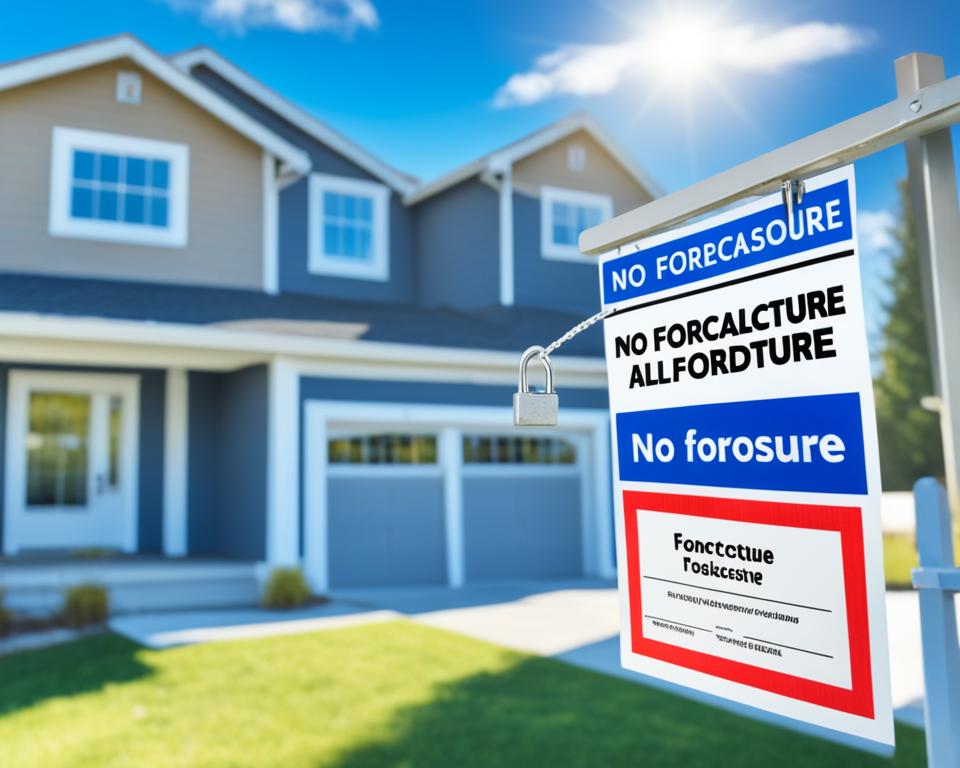
Gap Equity Loans: A Solution to Prevent Foreclosure
Facing foreclosure in Costa Rica is tough, but Gap Equity Loans can help. They offer flexible and competitive finances. This can keep you from losing your house.
How Gap Equity Loans Work
Gap Equity Loans give up to 50% of your property’s value. They range from $50,000 to over $3,000,000 USD. You have six months to three years to pay it back. The yearly interest rates are between 12% and 16%.
Closing costs are about 8% of your loan.
The Advantages of Gap Equity Loans
Gap Equity Loans in Costa Rica have several benefits. These loans are quicker and more flexible than banks. They also have lower closing fees and offer more financing options.
This means you can get the money you need fast. You won’t lose your home, and you can stay flexible with payments.
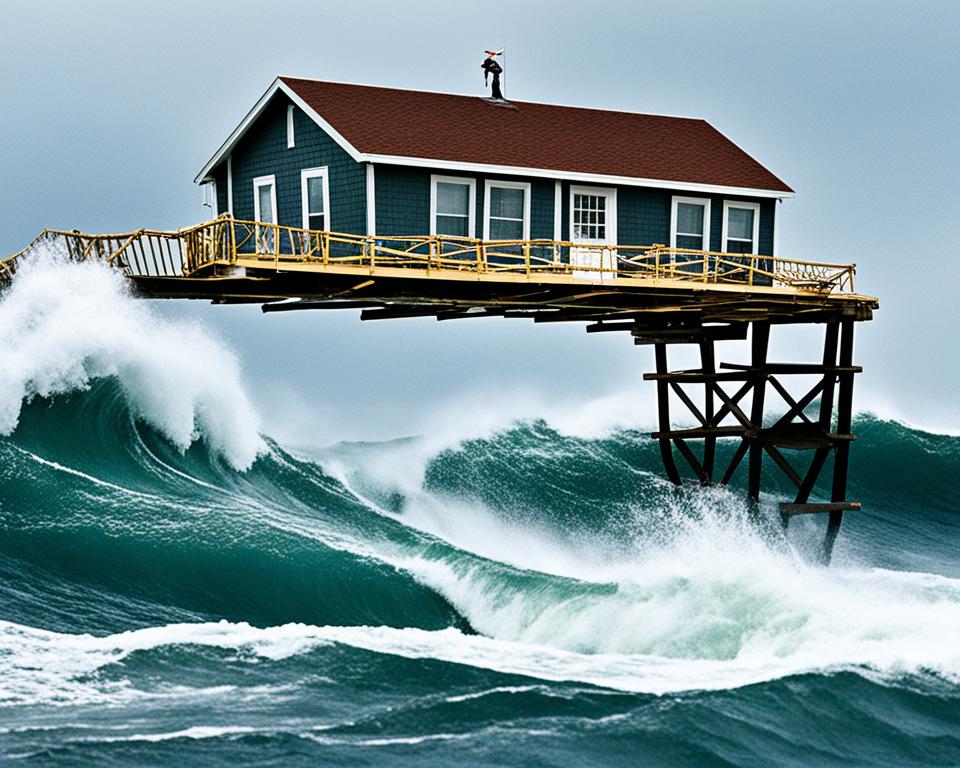
Preferred lending locations at Gap Investments focus on busy places. They offer unique chances all across Costa Rica. Investors of all levels get special help and advice. This makes success more likely.
if you’re worried about losing your home in Costa Rica, Gap Equity Loans are a good choice. They have good rates and flexible options. This way, you can keep your home and secure your investment.
Legal Rights and Protections for Homeowners
It’s vital to know your rights as a homeowner in Costa Rica, especially with foreclosure looming. The country’s laws try to balance things. They protect both lenders and give borrowers a chance to fix things. Knowing your rights helps you handle the foreclosure process better. This can prevent you from losing your home.
Foreclosure Laws in Costa Rica
The foreclosure laws in Costa Rica find a balance. They let lenders work to get their money back. But, they also give homeowners chances to solve their money problems. According to these laws, homeowners must first get a proper notice. They also get time to catch up on late payments before foreclosure starts. Homeowners can also challenge the foreclosure and try to make a deal with their lenders to pay what’s owed.
Your Rights During the Foreclosure Process
As a homeowner in Costa Rica, there are important rights you have, even during foreclosure. You must get a formal notice explaining why your home might be foreclosed. This notice also gives you time to try and fix the problem, if you can. If you think the foreclosure is wrong because of some mistake by the mortgage company, you can take it to court. You might also be able to save your home by paying off your loan or the buyer after the home is sold.
Getting advice from legal experts is smart. They can help you understand the foreclosure laws in Costa Rica. This way, you’ll know how to protect your home. You can avoid the stress and financial loss that often comes with foreclosure.
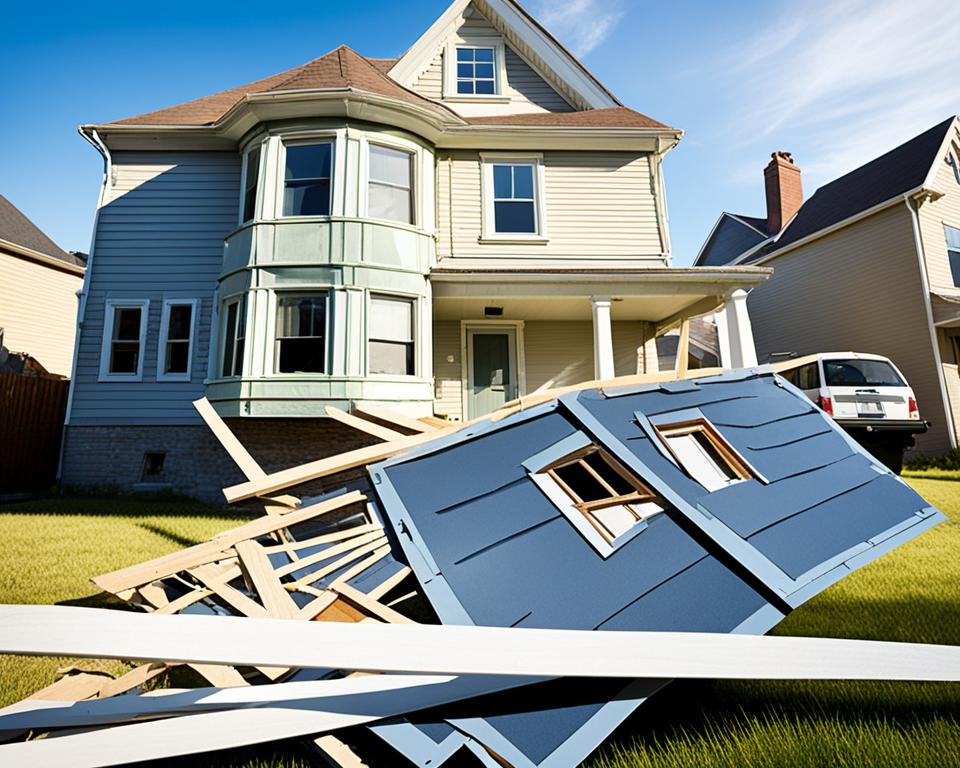
Tips for Homeowners Facing Foreclosure
If your home is at risk in Costa Rica, take steps to avoid foreclosure. Document your financial situation and any talks with your lender. This proof is vital if you need to show what you’ve done to prevent it.
Document Everything
Keep records of your money like bank statements and pay stubs. Also, save any talks or letters with your lender. Write down who you talked to, when, and what was said. This info is key to showing you’re trying to stop foreclosure.
Explore Assistance Programs
Check out any help or advice from assistance programs or housing counseling services in Costa Rica. They can guide you on your choices, help you talk to your lender, and look into ways to avoid foreclosure.
Stay Informed and Organized
It’s crucial to know your rights and Costa Rica’s foreclosure laws. Stay organized by keeping all documents in one place. This will help you understand your situation and make good choices during this tough time.
Follow these steps to better your chances of not having your home foreclosed. Securing your financial future in Costa Rica is possible with proactive choices.

Conclusion
Foreclosure is tough and can hit hard in Costa Rica. Yet, knowing the process and looking at options can save your home. Gap Equity Loans offer help. They give easy loan terms, low rates, and quick approval to stop foreclosure.
Call Now To Become a Private Lender With GAP Investments Today
Want to help homeowners in Costa Rica avoid foreclosure? Become a private lender with GAP Investments. We offer insight into great investment chances. By working with us, you can offer hope to families and earn good returns. Let’s make sure more houses stay with their families safely.
Our experts are here to help and answer your questions. Getting in touch is easy. A better financial future is at your fingertips. Call now for more on private lending and stopping foreclosure in Costa Rica.
FAQ
What is foreclosure in Costa Rica?
What are the steps in the foreclosure process in Costa Rica?
What are the alternatives to foreclosure in Costa Rica?
What is Gap Equity Loans and how can it help prevent foreclosure in Costa Rica?
What are the legal rights and protections for homeowners facing foreclosure in Costa Rica?
What should homeowners do if they are facing the risk of foreclosure in Costa Rica?
Source Links
- https://www.gapequityloans.com/en/avoid-foreclosure-in-costa-rica/
- https://www.gaprealestate.com/how-to-avoid-foreclosure-in-costa-rica/
- https://gapinvestments.com/en/how-to-avoid-foreclosure-in-costa-rica/
- https://www.bankrate.com/mortgages/how-to-avoid-foreclosure/
- https://www.hud.gov/topics/avoiding_foreclosure/foreclosuretips
- https://www.justia.com/foreclosure/alternatives-to-foreclosure/
- https://www.moneymanagement.org/blog/foreclosure-alternatives
- https://www.rhmfirm.com/blog/2024/january/what-are-some-alternative-options-to-foreclosure/
- https://www.forbes.com/advisor/mortgages/foreclosure-basics/
- https://www.huffpost.com/entry/foreclosure-housing-crisis-family-shame_n_65b6d4a5e4b0d407294f840a
- https://www.hud.gov/topics/avoiding_foreclosure/fctimeline
- https://gapinvestments.com/en/costa-rica-investments/
- https://www.gapequityloans.com/en/foreclosure-refinancing-in-costa-rica/
- https://gapinvestments.com/en/faq/
- https://gapinvestments.com/en/inner-circle/
- https://www.investopedia.com/what-are-your-legal-rights-in-a-foreclosure-4846357
- https://www.justia.com/foreclosure/rights-in-foreclosure/
- https://www.nolo.com/legal-encyclopedia/last-minute-strategies-stop-foreclosure.html
- https://treasurer.franklincountyohio.gov/Foreclosures Land-Bank/Tips/What-to-Do-When-Facing-Home-Foreclosure
- https://scholarworks.calstate.edu/downloads/x633f3750
Article by Glenn Tellier (Founder of CRIE and Grupo Gap)
